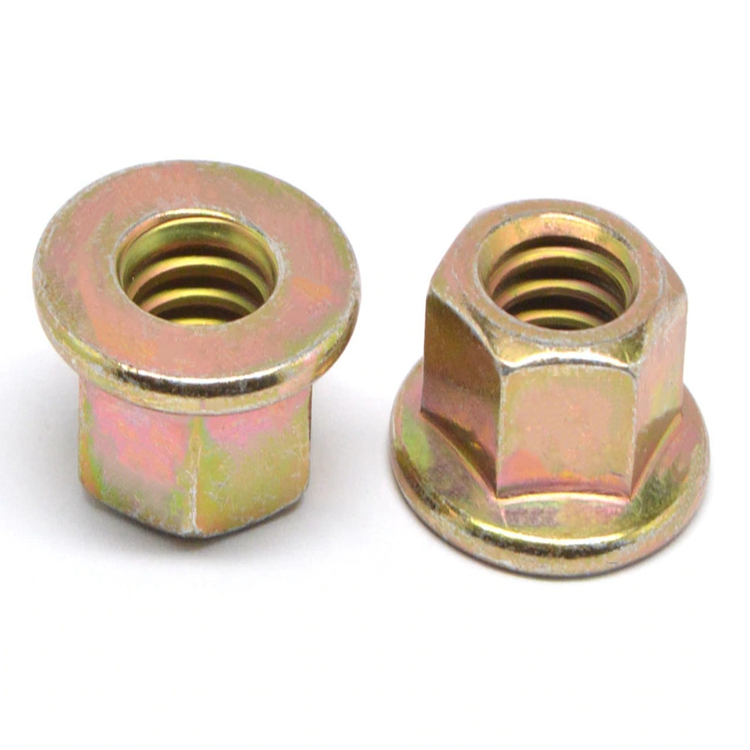round headed bolts factory
Dec . 05, 2024 10:35 Back to list
round headed bolts factory
The Rise of Round Headed Bolts An Insight into Modern Manufacturing
In the fast-paced world of manufacturing, the demand for robust and reliable fastening systems continues to grow. Among these, round headed bolts have emerged as a crucial component in various industries. This article delves into the intricacies of round headed bolts factories, their production processes, and the significant role they play in contemporary applications.
Understanding Round Headed Bolts
Round headed bolts are a type of fastener characterized by their rounded, dome-shaped head. This design not only provides aesthetic appeal but also offers practical advantages. The smooth surface of the rounded head minimizes the risk of snagging or catching on other objects, making it ideal for applications where safety and smooth operation are the priority. These bolts are typically used in machinery, structural applications, and even in domestic settings.
The Manufacturing Process
The manufacturing of round headed bolts involves several stages, each crucial to ensuring the quality and reliability of the final product. The primary materials used are high-quality steel and stainless steel, both known for their strength and durability.
1. Material Selection The first step in the production of round headed bolts is the careful selection of raw materials. Factories often source steel from reputable suppliers to ensure that it meets specific standards for hardness, tensile strength, and corrosion resistance.
2. Forging Once the materials are selected, the next stage is forging. The steel is heated to a malleable state and then shaped into the rough form of a bolt using a series of dies. This process enhances the strength of the bolt by aligning its molecular structure.
3. Machining After forging, the bolts undergo machining to achieve precise specifications. This includes cutting the threads and forming the round head. Advanced CNC (Computer Numerical Control) machines are often employed to ensure accuracy and consistency in each piece produced.
round headed bolts factory

4. Heat Treatment To further enhance the strength and durability of the bolts, heat treatment is applied. This process involves heating the bolts to a specific temperature and then cooling them rapidly, which hardens the metal and improves its resistance to wear and tear.
5. Finishing The final stage in the production of round headed bolts is finishing. This can involve processes such as plating or coating to prevent corrosion and improve appearance. Factories use various finishing techniques, including zinc plating, black oxide, and galvanizing, depending on the intended use of the bolts.
Quality Control Measures
In a reputable round headed bolts factory, quality control is paramount. Every batch of bolts undergoes rigorous testing to ensure they meet industry standards. This includes tensile tests, hardness tests, and inspection for surface defects. By adhering to strict quality control measures, factories can guarantee that their products will perform reliably in demanding applications.
Applications of Round Headed Bolts
Round headed bolts are versatile and used across numerous industries. In automotive manufacturing, they play a vital role in securing components within vehicles. In construction, they are essential for assembling structures and ensuring stability. Home improvement projects also frequently employ round headed bolts, due to their ease of use and safety benefits.
Future Trends in Fastener Manufacturing
As technology continues to advance, the future of round headed bolt manufacturing looks promising. Factories are increasingly adopting automation and smart manufacturing practices to enhance efficiency and reduce costs. Additionally, the push for sustainable manufacturing processes is leading to innovations in material sourcing and waste management.
In conclusion, round headed bolts are more than mere fasteners; they are integral components that contribute to the safety and integrity of a wide array of systems. The factories that produce them are dedicated to maintaining high standards of quality and innovation, ensuring that these small but mighty fasteners can meet the growing needs of various industries. As we look ahead, it is clear that the significance of round headed bolts in the manufacturing landscape will only continue to rise, paving the way for advancements in both manufacturing techniques and application possibilities.
Latest news
-
High-Quality Panel Stud Bolt Reliable Panel Stud Bolt Factory & Suppliers
NewsJul.08,2025
-
High-Precision Fine Thread Locknuts Manufacturer & Supplier Custom Solutions
NewsJul.08,2025
-
PH Imperial Stud Bolt – High Strength Fasteners from Leading Supplier & Factory
NewsJul.07,2025
-
High-Quality Allen Wrench Bolts Leading Factory, Company & Suppliers
NewsJul.07,2025
-
Wholesale Ball Stud Bolt - High Quality Supplier & Factory Price Reliable Wholesale Ball Stud Bolt Company
NewsJul.06,2025
-
High-Strength Alloy Bolts Manufacturer & Supplier Quality Alloy Fasteners Factory
NewsJul.06,2025
